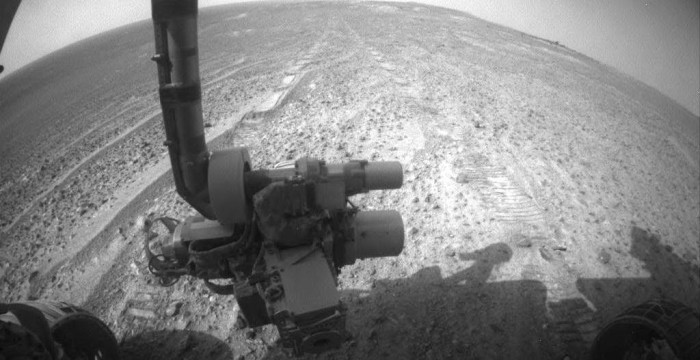Opportunity continues to have flash issues

The Opportunity rover continues to plow the surface of the Red Planet, regularly sending the collected information to NASA. It's hard to believe, but in a month the 12th year of its continuous work will go!
After this period of operation, inevitably, technical problems should have occurred. So it happened, and the most vulnerable element of the rover was flash memory. In October of this year, Opportunity flash memory even had to be formatted .
After formatting, the situation did not improve. The on-board computer rebooted many times, and the engineers put the rover in operation without using flash memory. In this mode, the robot can partially function, collect scientific data and move around, although it is not able to store information during a night's sleep.
The good news is that engineers intend to recover flash memory after all.
“Soon after the New Year’s holidays, we’ll try a workaround to lock a bad memory bank,” said Guy Webster of NASA Jet Propulsion Laboratory in an interview with Astrowatch.net.
As it turned out, failures are observed only in one of the seven banks of flash memory. Mars rover operators are now preparing a set of commands to disable this particular chip.
Prior to the final repair, all the collected information is placed in RAM - and, if possible, is sent to Earth before it goes into sleep mode.
“Both Spirit and Opportunity began to experience flash issues after several years of operation on Mars,” said Webster. “When they worked ten times longer than they should be.” At the end of January 2015, Opportunity will exceed its planned life by 44 times.
Now the rover continues on its way to the Marathon Valley of Mars, where the Mars Reconnaissance Orbiter noticed the presence of a large amount of clay minerals.
A thermal emission spectrometer has already failed from scientific instruments (dust on a mirror makes data analysis difficult). The Mössbauer spectrometer, after repeatedly measuring the half-life of the particles, now calculates the readings for weeks, so it has become unsuitable for practical use. The source of radioisotopes for the alpha particle spectrometer is also significantly depleted, so measurements take longer. But you can still use it, and the rest of the tools are fine, too, said Guy Webster.
